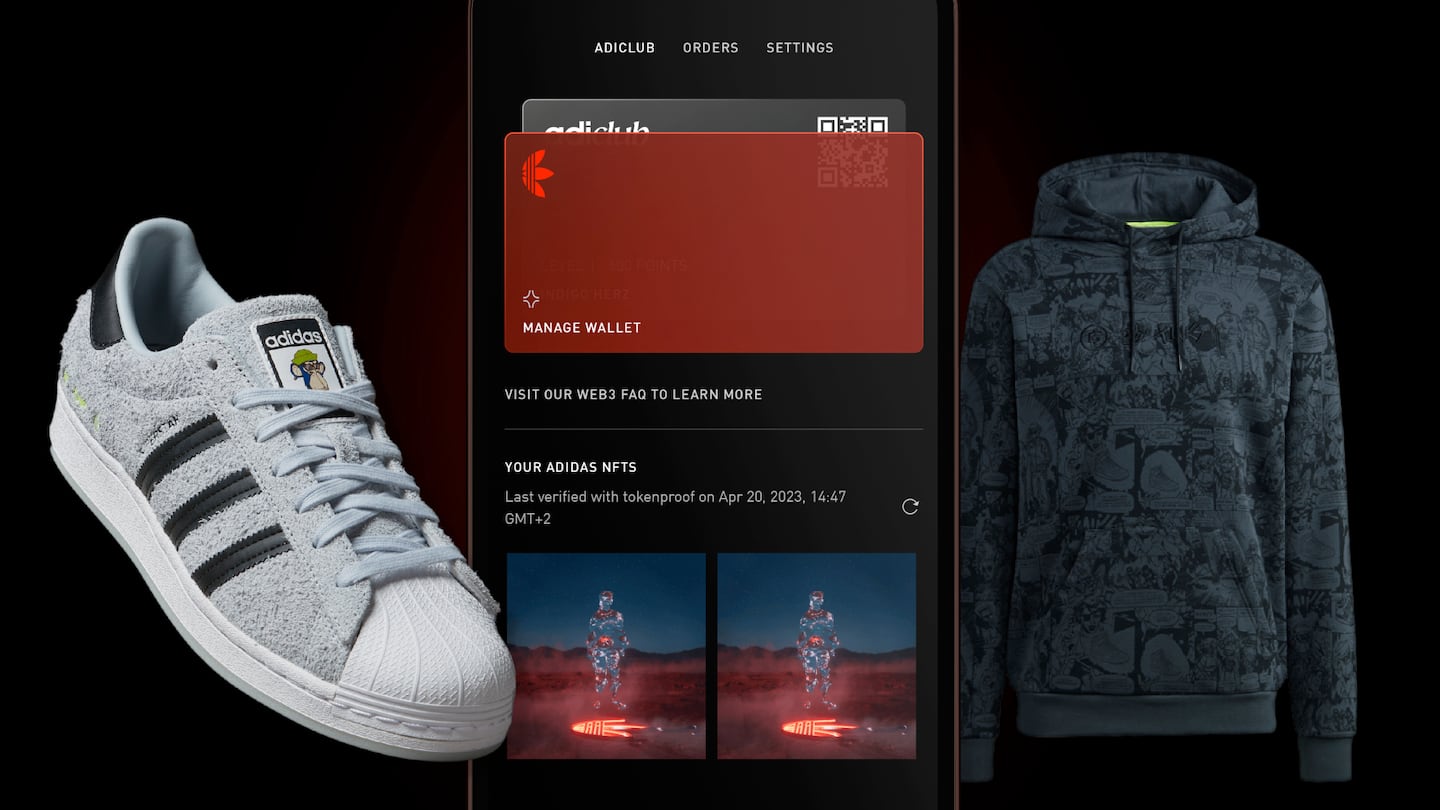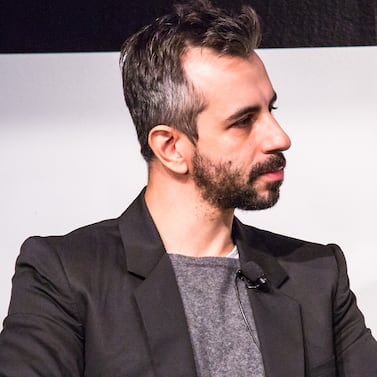
The Business of Fashion
Agenda-setting intelligence, analysis and advice for the global fashion community.

Agenda-setting intelligence, analysis and advice for the global fashion community.

Adidas has a new long-term deal with a web3 company to bring token-gating, which lets brands grant preferred access to drops, offers or events through NFTs, into its Confirmed app, where Adidas releases its most in-demand products.
On Tuesday, the German sneaker maker announced a three-year partnership with Tokenproof, a platform providing blockchain-based authentication. Right now, users of the Confirmed app will see the newest drop from Adidas’ web3 project, Into the Metaverse, including a pair of Superstar sneakers and a hoodie made in collaboration with partners Bored Ape Yacht Club, Gmoney and Punks Comic. To buy it, though, they’ll need to connect a crypto wallet holding specific Adidas NFTs.
The aim isn’t just to limit who can get a product, according to Erika Wykes-Sneyd, co-founder of Adidas’ web3 studio. It’s also a way to guarantee access to certain groups so they never have to wait in line or lose out to bots for a product. She described it as providing a new capability Adidas is calling “direct to fan” or “direct to collector.”
“For the first time ever, you can authenticate a real person and what they own, giving them token-gated access to a very curated shopping, physical experience across the Adidas ecosystem,” she said. “Imagine how this could support teams or clubs or leagues that are looking to get closer to their fans and their loyalists … Same thing goes with other fashion
ADVERTISEMENT
brands that we might collaborate with.”
To use the technology, customers will need a crypto wallet and the Tokenproof app, which does create a few extra steps for shoppers and potentially limits the number who would use it, at least until web3 becomes more mainstream.
“We’re working on ways to bring the barriers of friction down even more by embedding a wallet into the Tokenproof app so that it’s an all-in-one shop,” said Fonz Olvera, founder and chief executive of Tokenproof.
But Olvera and Wykes-Sneyd both believe this version of connecting with customers would benefit brands and shoppers alike. When a customer connects their wallet to the Confirmed app, Adidas would be able to see which NFTs they’re holding, such as those tied to products they’ve bought in the past or events they attended. Adidas is thinking about how it can use this information to personalise offers and invites in more innovative ways than sending out an email a customer isn’t likely to read, according to Wykes-Sneyd.
“It’s like a much more robust, much more nuanced [customer relationship management] capability because it’s verified and it’s on chain,” Wykes-Sneyd said.
It would also give Adidas a valuable source of customer data, which is only growing more important as privacy measures make it harder for brands to target shoppers. Customers, meanwhile, would be rewarded for providing their data.
Adidas is now competing against its biggest rivals in sneakers, Nike and Puma, in web3 as well. While the brands have taken different approaches, with Nike avoiding the term NFT altogether, all are exploring the space as a way to build membership programmes and build customer loyalty. They also see an opportunity in virtual goods, which is now an official business area within Adidas.
Prior to signing the new partnership deal, Adidas worked with Tokenproof on token-gating events it’s held recently for its web3 community. Guests who checked in for Adidas’ NFT NYC event at its New York flagship last month were airdropped a 20 percent discount usable in-store with the Tokenproof app.
“I truly believe that marketing is all about orchestrated touchpoints and not these touchpoints in isolation,” Olvera said. “It just shows you how we can further incentivise participation based on previous participation with the brand, and we can do this digitally or in the real world. That opens up a lot of possibilities.”
A growing number of brands will be experimenting with nascent web3 technologies like NFTs, and learning that careful nurturing is needed to thrive, as The State of Fashion 2023 explains.
Brands like Adidas, Gucci and The Hundreds are finding the tokens are a great way to reward their superfans. But maintaining that loyalty can be hard work.
The German brand revealed its first collection of NFT wearables for virtual spaces just days after Nike announced the debut of its web3 platform.

Marc Bain is Technology Correspondent at The Business of Fashion. He is based in New York and drives BoF’s coverage of technology and innovation, from start-ups to Big Tech.
The nature of livestream transactions makes it hard to identify and weed out counterfeits and fakes despite growth of new technologies aimed at detecting infringement.
The extraordinary expectations placed on the technology have set it up for the inevitable comedown. But that’s when the real work of seeing whether it can be truly transformative begins.
Successful social media acquisitions require keeping both talent and technology in place. Neither is likely to happen in a deal for the Chinese app, writes Dave Lee.
TikTok’s first time sponsoring the glitzy event comes just as the US effectively deemed the company a national security threat under its current ownership, raising complications for Condé Nast and the gala’s other organisers.